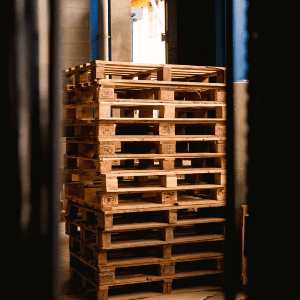 When the pandemic reared its ugly head, no industry suffered more than hospitality. With supply chains affected and fewer vacations booked, saying that COVID-19 impacted hotels greatly would be an understatement. But, the hotel industry is likely to recover shortly. When that does happen, hotels have to be ready to adopt best practices and overcome challenges.
When the pandemic reared its ugly head, no industry suffered more than hospitality. With supply chains affected and fewer vacations booked, saying that COVID-19 impacted hotels greatly would be an understatement. But, the hotel industry is likely to recover shortly. When that does happen, hotels have to be ready to adopt best practices and overcome challenges.
The best tips for managing supply chain logistics for hotels
The hotel industry has an extremely complex supply chain filled with a large inventory, holding costs, and perishables. You need a well-managed supply chain to run a successful hotel.
1. Recruit supply chain professionals
According to a Deloitte study, only 38% of supply chain leaders think their current supply chain team’s abilities can compete in the ever-changing market. This shows that there’s a shortage of skilled supply chain talent. Focusing on closing this gap in hospitality is a job worth investing in.
Hotels can find new talent with the required knowledge necessary by hiring specialized staffing companies. Building relationships with colleges by offering internships is another good way to scope out young talent. Employees should also provide career development opportunities.
2. Invest in technology and software
From planning the shortest route to creating orders and invoices, you’ll need to adopt the right technology to ensure your supply chain adopts a steady flow. These often include programs like Excel, route planning software, enterprise resource planning systems, and other integrations.
Different parts of the supply chain often use different manual processes and systems to perform supply chain tasks. If you don’t automate at least some of the process, you could make costly mistakes. In a fast-moving industry like hospitality, you can’t afford to leave logistics to chance.
3. Align your supply chain team
Cross-business execution is the best way to optimize your supply chain, but in hospitality, each function of the supply chain operates like a distinct entity. When business units are separated, teams won’t work to accomplish the same goals, leading to disparities in time and resources.
Hotels can hire a project or operations manager that coordinates communication and activities across business units. They can standardize supply chain processes by supplying detailed instructions to each group. Plus, they can adjust strategies on the fly if there’s a hiccup.
4. Visibility and document management
Visibility and centralized document management are just some of the benefits that come with an aligned supply chain team. Businesses need end-to-end visibility to account for every aspect. Real-time data can offer a bird’s eye view of the entire chain for both the hotel and customers.
When it comes to managing purchase orders, hotels need to create a centralized hub. If a hotel had a one-stop shop for decision-makers to review supply chain activities, they could eliminate ad-hoc document management. This reduces errors and increases their responsiveness.
5. Diversify your team of suppliers
No one can predict when a supplier will run short on supplies, especially in instances where certain products or materials are hit and miss. Even in a post-pandemic world, political and regulatory issues, weather, and import/export issues will occur at some point in the year.
Businesses can quickly account for delays by working with more than one supplier, purchasing in volume, or supplementing shortages by shopping locally. While all three solutions aren’t guaranteed to work, they do offer you a backup plan that could prevent shortages in the future.
6. Invest in supplier relationships
Hotels are in a people-first industry, but so are your suppliers. Both industries have to work together to ensure their customers get their products on time. However, it’s easy to forget that both industries need to develop a long-lasting relationship in order to achieve their objectives.
You can’t force two companies to get along when they don’t share the same values and principles, so it’s best to separate from a supplier you don’t trust. Whatever your supplier does reflects on your business, so vet your suppliers carefully before working with them full-time.
7. Improve demand forecasting
Once again, hotels can’t tell the future, but they can improve demand forecasting by following trends. If a certain drink, menu item, or room is popular during a specific season, you’ll understand what to order when and what items you should keep in stock during a rush.
Not only that, but demand forecasting can also prevent overstocking issues for perishables and season-specific items, where lack of prior planning can be especially costly. Demand forecasting requires predictive analysis, which you can find within supply chain management software.
8. Track the right metics
Predictive analysis is a great way to fix supply chain mishaps, but is there any way to improve them? Yes, with data and metrics. Supply chain metrics (or key performance indicators) allow managers to create specific parameters that they can use to quantity supply chain performance.
For example, “perfect order rate” documents the amount of error-free orders, whereas “inventory velocity” looks at what products sell within a given time frame. Other critical metrics include “supply chain cycle time,” “inventory-to-sales rate,” and “warehousing costs.”
9. Invest in social sustainability
Adopting a more environmentally friendly, sustainable business strategy can actually help you manage your supply chain logistics. How? Because Millenials and Gen Z prefer to buy from socially responsible brands. They also like to review their experiences on social media.
When you become more focused on sustainability, more high-quality suppliers will work with you because of your great reputation and popularity. If you’re lacking talent, minimize the social and environmental effects of the supply chain. Quality hires will want to work for your brand.
10. Practice risk-management
There are several risks present in the supply chain—for example, order-to-pay. When hotels take too long to pay their supplier, it makes it impossible for them to receive their orders in a timely fashion. Automating order-to-pay is a great way to simplify the entire process.
However, risks also come from compliance issues. Trade disputes, port disruptions, and cybersecurity breaches are just some of the dangers that could damage supply chain and customer relationships. For this reason, you have to stay up to date with regulatory changes.






























